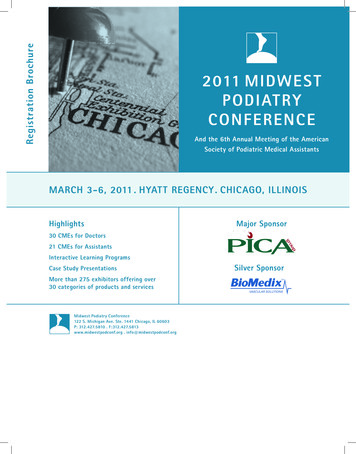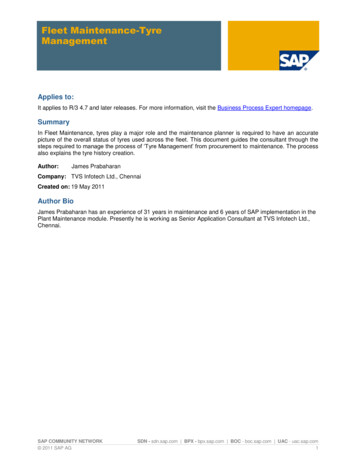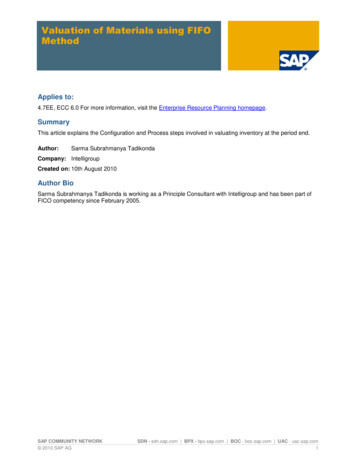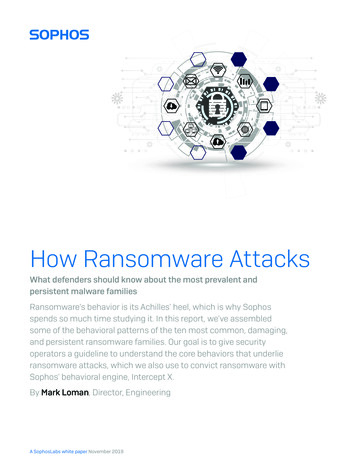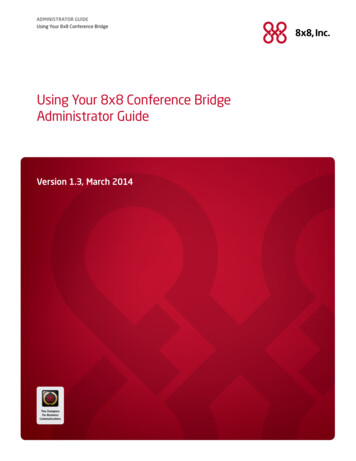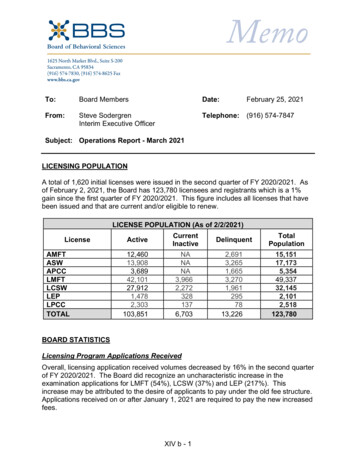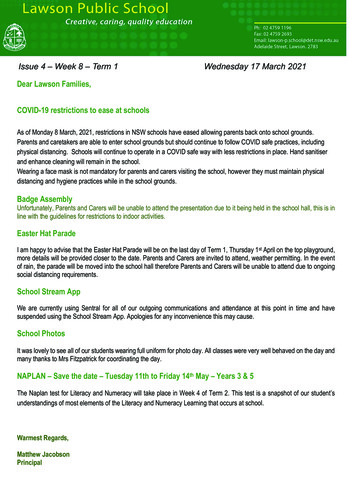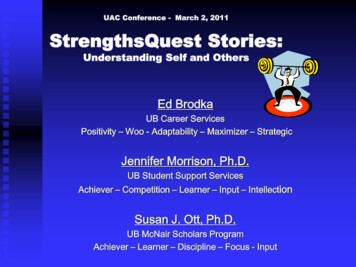
Transcription
UAC Conference - March 2, 2011StrengthsQuest Stories:Understanding Self and OthersEd BrodkaUB Career ServicesPositivity – Woo - Adaptability – Maximizer – StrategicJennifer Morrison, Ph.D.UB Student Support ServicesAchiever – Competition – Learner – Input – IntellectionSusan J. Ott, Ph.D.UB McNair Scholars ProgramAchiever – Learner – Discipline – Focus - Input
Our Goals for Today 1. Overview of StrengthsQuest and why it’simportant.2. Opportunity to get a “taste” of SQ.3. Hear how our 3 departments at UB are usingStrengthsQuest.4. Share how you may be using SQ at yourschools.5. Other resources and training.
Raise your hand if you.1. Are currently using StrengthsQuest at yourschool or department.2. Are somewhat familiar with StrengthsQuest butare not really using it.3. Know little or nothing about StrengthsQuest.
Is this about your success or thesuccess of your students?Both!
What do we know about Success?“Individuals gain more whenthey build on their talents, thanwhen they make comparableefforts to improve their areas ofweakness”-Clifton & Harter
People who have the opportunity to focuson their strengths everyday are:1. Six times as likely to be engaged in theirjobs2. More than three times as likely to reporthaving an excellent quality of life in general- Tom Rath (2007)
Strengths in Organizations – Employee Engagement2%100%80%Engaged29%45%57%61%60%Not Engaged40%55%33%40%20%38%22%16%1%0%2006 right 2008 Gallup, Inc. All rights reserved.
Some Research Findings .Strengths-based interventions have contributed tostatistically significant increases in:Student retention and academic performance Students’ academic engagement and self-efficacy Self-confidence, optimism, direction, hope, altruism,and sense of meaning and purpose See strengthsquest.com – Educator Resources – Research, also A Comprehensive Strengths-Based Approach to the First-Year Experience, Laurie A.Schreiner, Ph.D. Eileen Hulme, Ph.D. Azusa Pacific University, 2006 Annual Conference onthe First-Year Experience
Employers and Graduate/Professional Schoolswill ask our students:What are your strengths?
Here are 5 common answers to the question:What are your strengths?1.2.3.4.5.“I work well with others.”“I have good communicationskills.”“I am organized”“I am creative.”“I am a hard worker”.
How can StrengthsQuest help?It expands our vocabulary about our talents.How?Based on Gallup polling company’s 40 yearstudy of human strengths, scientists lead byDonald Clifton created a language of 34 mostcommon themes of talent that are used whenpeople are successful.
What is Talent vs. Strength?Talent (a natural way of thinking, feeling or behaving)XInvestment (time spent practicing, developing your skills,and building your knowledge base) Strength(the ability to consistently provide near-perfect performance,doing something that makes you feel strong)
If you want to succeed, you need to:1. Realize and affirm your natural talents andsee where you can use them.2. Develop your talents for given activities.3. Apply your strengths in life –academics,careers and relationships.
Activity: Choose & Share Strength Story1. From the StrengthsQuest Quick ReferenceGuide, put a “X” next to 5 that you feel bestdescribe esources.aspx2. In small groups, share a story of how youhave recently used one of your chosentalents in your job or at home.
How have we used StrengthsQuest incareer services, academic advising andgraduate school advising?
For more info from Gallup.1.2.3.Go to strengthsquest.com to see Educator Resourcesincluding free webinars, trainings, articles, activities andresearch.For more info contact: StrengthsInfo@gallup.com or call:(800) 713-2595To bring a training to your campus, please reach out to:KYLE J. ROBINSON, kyle robinson@gallup.com ,Director of Programming and Career DevelopmentEducation Practice, (952)838-0239
For more info at NACADA Articles sues/Theory.htm Strengths Based AdvisingStrengths Based Advising via the NACADA JournalUsing Strengths-Based Advising to Promote Persistenceand Restructure “One Size Fits All” Advising ModelsNACADA Webinar at:http://www.nacada.ksu.edu/Webinars/W39.htmDW39 Academic Advising for Student Retention and Persistence: A StrengthsDevelopment ApproachOnline Webinar PresentationThursday, March 31, 20111:00 - 2:30 Central Time
Read this book:StrengthsQuest: Discover and Develop Your Strengths inAcademics, Career, and Beyond, by Clifton et. al. (2006)oraccess it on-line with a SQ CodeAffirming/Developing sections Actionable Items for all 34 ThemesApply Your Strengths in Academics General academic life Study Techniques Relationships Class Selection Extra Curricular ActivitiesApplying Your Strengths in Careers Actionable Items for all 34 ThemesCopyright 2008 Gallup, Inc. All rights reserved.
Questions?Thank you for sharing your Strengthswith us!.-Ed , Jennifer and Susan
Read this book: StrengthsQuest: Discover and Develop Your Strengths in Academics, Career, and Beyond, by Clifton et. al. (2006) or access it on-line with a SQ Code Affirming/Developing sections Actionable Items for all 34 Themes Apply Your Strengths in Academics
